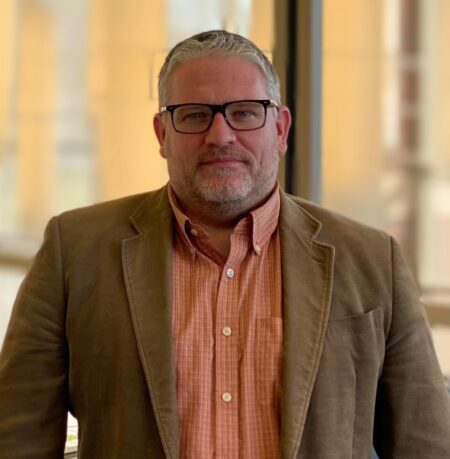Start the year off saving: Purdue HHS researcher offers strategies for financial resolutions
Written By: Rebecca Hoffa, rhoffa@purdue.edu

In a year where topics such as high inflation rates made frequent appearances in the news, saving more money is likely toward the top of many households’ resolutions lists for 2022. While it can seem like a daunting task, setting a New Year’s resolution to save more money or improve financial well-being doesn’t have to be difficult to achieve.

David EvansPhoto provided
David Evans, a continuing lecturer of financial counseling and planning in the Purdue University College of Health and Human Sciences (HHS), studies savings behaviors of low-income households as well as those of households when they are looking to save or invest. His work aligns with the college’s Healthy Lifestyles and Vital Longevity signature research area to help individuals achieve financial health and well-being.
Evans noted that one of the biggest mistakes people often make is rushing into their resolutions. Personal finance, just like exercising more or eating healthier, is most effective when done slowly over time. In doing so, Evans advises connecting increases in saving with a raise, bonus or tax refund and planning the timeline of the resolution accordingly.
“If you’re going to make a resolution, make it for down the road,” Evans said. “Commit to it today to do it tomorrow. Then, when that date comes, you’ve built up a little bit more commitment, and you’re a little bit more likely to start saving.”
Financial resolutions have a unique aspect to them because individuals can set up the logistics of their savings plan and then build toward their goal without having to closely monitor it.
“Personal finance has a way for you to automate your behavior and hide it from yourself,” Evans explained.
Evans recommends individuals meet with their employer’s human resources department to revisit their W-4 forms and request that money be taken out of their paycheck each pay period. That money can then be deposited in an account that’s separate from their regular checking or savings account, allowing consumers to “trick” themselves into saving.
Evans said it’s important that individuals plan for retirement. In doing so, he encourages people to be aware of their financial needs by using a retirement calculator or going through a retirement planning course, such as HHS Extension’s online Planning for a Secure Retirement program.
He also noted that it’s important to branch out beyond savings into investments, such as the stock market, mutual funds and IRAs, because money that is sitting in a bank account isn’t really growing, and individuals will be losing out on future money they could make from their investments. Evans recommends the program Acorns, which automatically rounds up every credit or debit purchase an individual makes to the next dollar and invests that money in the stock market.
“If you’ve never tried investing in the stock market, it can be scary, and it’s hard to convince a spouse or someone who’s scared of the stock market that you’re going to start taking some money and putting it in there. A program like Acorns is a good way to ease into it and also a nice automatic way of investing money that you didn’t even know you had,” Evans said.
Evans noted if individuals find themselves thinking they’ve failed their New Year’s resolution to save more, they may be doing better than they think. The national savings rate also accounts for paying down debt in addition to depositing money into a savings account.
“So, even if you do kind of fall off the rails, remember that if you’re making payments to your debt, you’re still saving, and you never fell off the train,” Evans said. “You are on this train called ‘savings’ if you are either saving positively or decreasing a negative balance in an account that you used to borrow money.”
One thing that Evans encourages people to remember is that when it comes to finance, everyone has to figure out what works and what doesn’t for them, which takes trial and error.
“Be kind to yourself,” Evans said. “We struggle with this concept, and we all have to have tricks and tips to get ahead.”